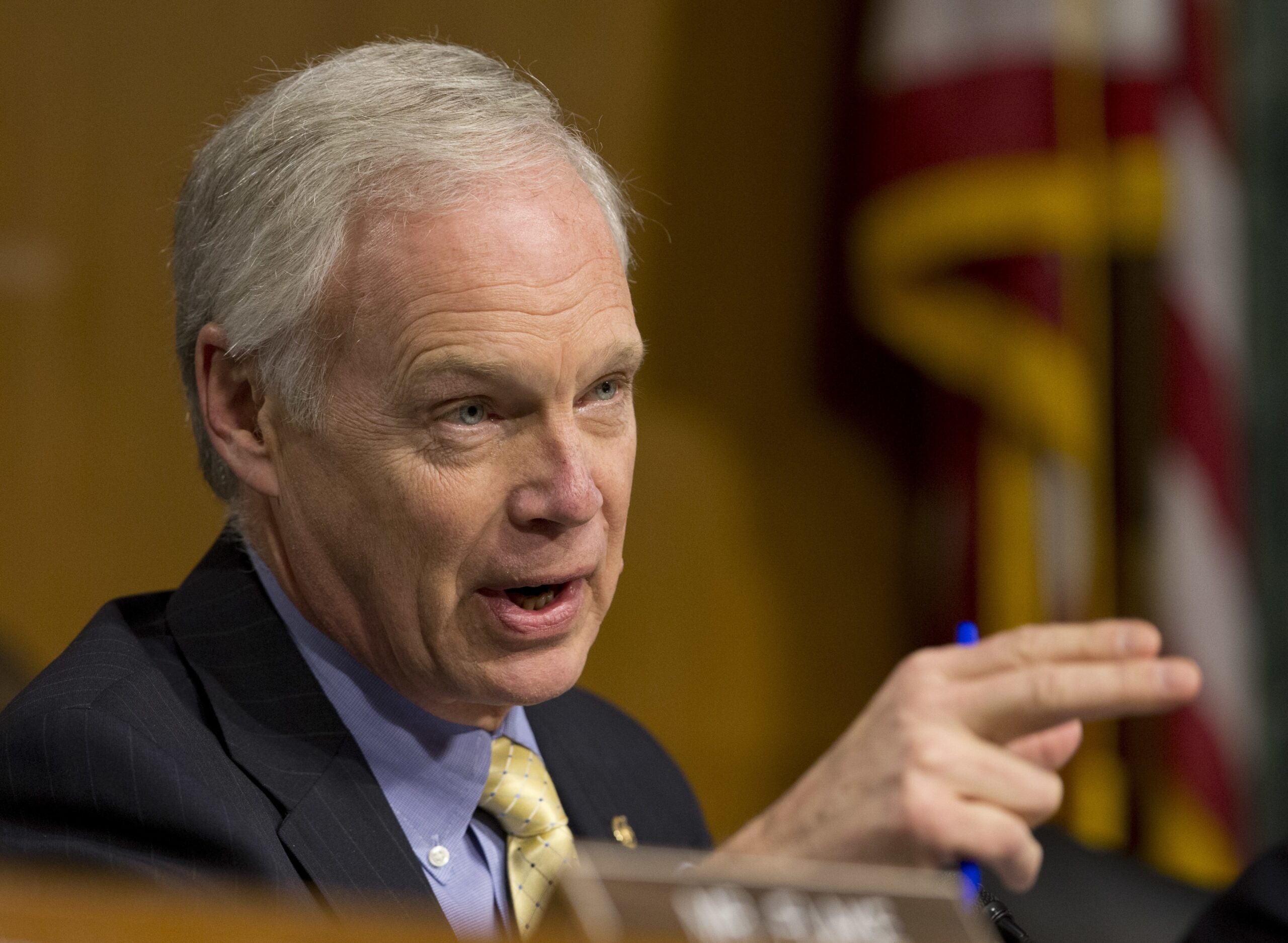Wisconsin U.S. Sen. Ron Johnson is among four Republicans in the chamber who say they won’t vote for the health care overhaul package unveiled by Senate leaders Thursday.
Johnson, along with Ted Cruz, R-Texas, Mike Lee, R-Utah, and Rand Paul, R-Kentucky, released a short statement responding to the legislation, dubbed the “Better Care Reconciliation Act of 2017.”
From the statement:
Stay informed on the latest news
Sign up for WPR’s email newsletter.
“Currently, for a variety of reasons, we are not ready to vote for this bill, but we are open to negotiation and obtaining more information before it is brought to the floor. There are provisions in this draft that represent an improvement to our current health care system but it does not appear this draft as written will accomplish the most important promise that we made to Americans: to repeal Obamacare and lower their health care costs.”
The bill, touted as a replacement for former President Barack Obama’s signature health care overhaul, the Affordable Care Act, was crafted behind closed doors.
Senate Majority Leader Mitch McConnell, R-Kentucky, is pushing for a vote by July 4. The GOP Senate majority can only afford to lose two votes to pass the plan without Democratic support.
Johnson expressed concerns earlier in the week, saying he would like more time to review the bill before voting on it.
The Senate’s version unveiled Thursday would gradually roll back expansion of Medicaid funding compared to the House of Representatives’ bill. It also eliminates penalties for people who don’t buy health insurance. Republican lawmakers say the Senate bill will preserve coverage for people with pre-existing conditions.
Wisconsin Medical Society president Noel Deep said any proposal should continue affordable, quality coverage.
“We’ll probably have to wait and see what the CBO comes up with their score and how many of the currently insured people will be able to maintain their coverage,” Deep said.
The Congressional Budget Office (CBO) is expected to release its forecast on the Senate draft next week. The CBO estimated 23 million Americans would lose coverage under the House version of the bill that President Donald Trump called “mean.”
Deep said lawmakers should work to preserve several parts of the ACA.
“Guaranteed coverage for pre-existing conditions, including both mental and behavioral health services, and ability for children to remain on their parent’s insurance plan until the age of 26 and the ban on lifetime caps, should all be part of any proposal,” Deep said.
U.S. Sen. Tammy Baldwin, D-Wisconsin, released a prepared statement in response to the Senate’s proposal, which she said has “no heart.”
“It will make families pay more for less care and increase the number of people who are uninsured,” wrote Baldwin in a prepared statement. “The guaranteed protections and care that you have today are weakened, and now politicians in Madison will decide whether you keep the care you have, or whether it is taken away.”
Baldwin added older adults and those with pre-existing conditions could face higher prices to pay for insurance, leaving some without coverage.
Lisa Olson, director of policy and programs with the Wisconsin Primary Health Care Association, said the bill would also tie funding for Medicaid to a slower growth rate than the House version.
“It would basically mean that for folks who are covered by the Medicaid program it wouldn’t necessarily allow for the coverage to keep up with the increased cost of care over time,” she said. “If coverage or services become more expensive, the Medicaid program might not keep up with that in the same way it does today.”
Olson said the move shifts more risk to states and may prompt them to rethink who’s eligible to receive care under Medicaid, putting coverage for low-income and older Wisconsinites at risk.
Editor’s Note: This story was last updated at 2:51 p.m. Thursday, June 22, 2017.
Wisconsin Public Radio, © Copyright 2025, Board of Regents of the University of Wisconsin System and Wisconsin Educational Communications Board.







